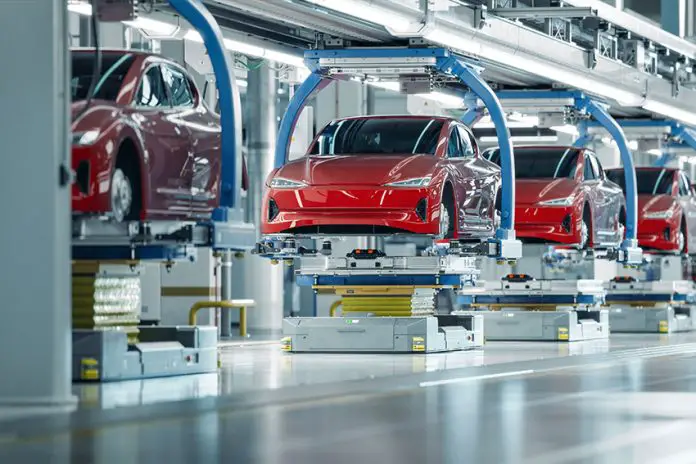Mexico could become the top electric vehicle (EV) exporter to the United States in 2024 after EV shipments surged in the first half of the year, along with revenues.
U.S. Department of Commerce data shows that Mexico shipped EVs worth US $3.127 billion to its northern neighbor in the first six months of the year, an impressive 172% increase in EV export revenue compared to $1.15 billion in the same period of 2023.

Mexico ranked as the second biggest EV exporter to the world’s largest economy between January and June, behind only Germany.
German EV exports to the U.S. increased by a comparatively meager 7.8% in annual terms to reach $3.213 billion, or just $86 million more than Mexico’s revenue.
South Korea was the third biggest EV exporter to the U.S. in the first six months of the year, followed by Japan and Belgium.
The United States imported EVs worth a total of $11.95 billion in the period, a 36.1% year-over-year increase.
If Mexico maintains its strong EV export growth in the second half of 2024 it could finish the year as the top external supplier of electric vehicles to the United States. That would be an additional feather in the cap for Mexico, which dethroned China to become the largest overall exporter to the U.S. in 2023.
Among the automakers that make EVs in Mexico are Audi, BMW and General Motors.
Foreign automakers with plants in Mexico benefit from the United States-Mexico-Canada Agreement, the free trade pact that superseded NAFTA in 2020.
Tesla and BYD — the world’s two top electric vehicle manufacturers — have announced plans to open plants here, but it is unclear when they might open.
Mexico’s EV exports increased more than 18,000% (yes, really!) in just 4 years
United States data shows that the value of EVs exported to the U.S. from Mexico in 2019 was just $21 million.
Revenue increased slightly to $25 million in 2020 — when the COVID pandemic disrupted auto production — before skyrocketing to $1.732 billion in 2021, a jump of 6,828% in just one year.
The value of Mexico’s EV exports rose to $2.346 billion in 2022, a 35% year-over-year increase, before surging to $3.811 billion in 2023, an annual gain of 62%.
The increase in Mexico’s EV revenue between 2019 and 2023 was a whopping 18,047%.
If the value of Mexico’s EV exports to the U.S. in the second half of 2024 matches that of the first half, revenue will be $6.254 billion.
That figure would represent an increase of almost 30,000% compared to 2019.
The numbers could be even more impressive – and mind-boggling – in the years ahead.
With reports from El Economista
